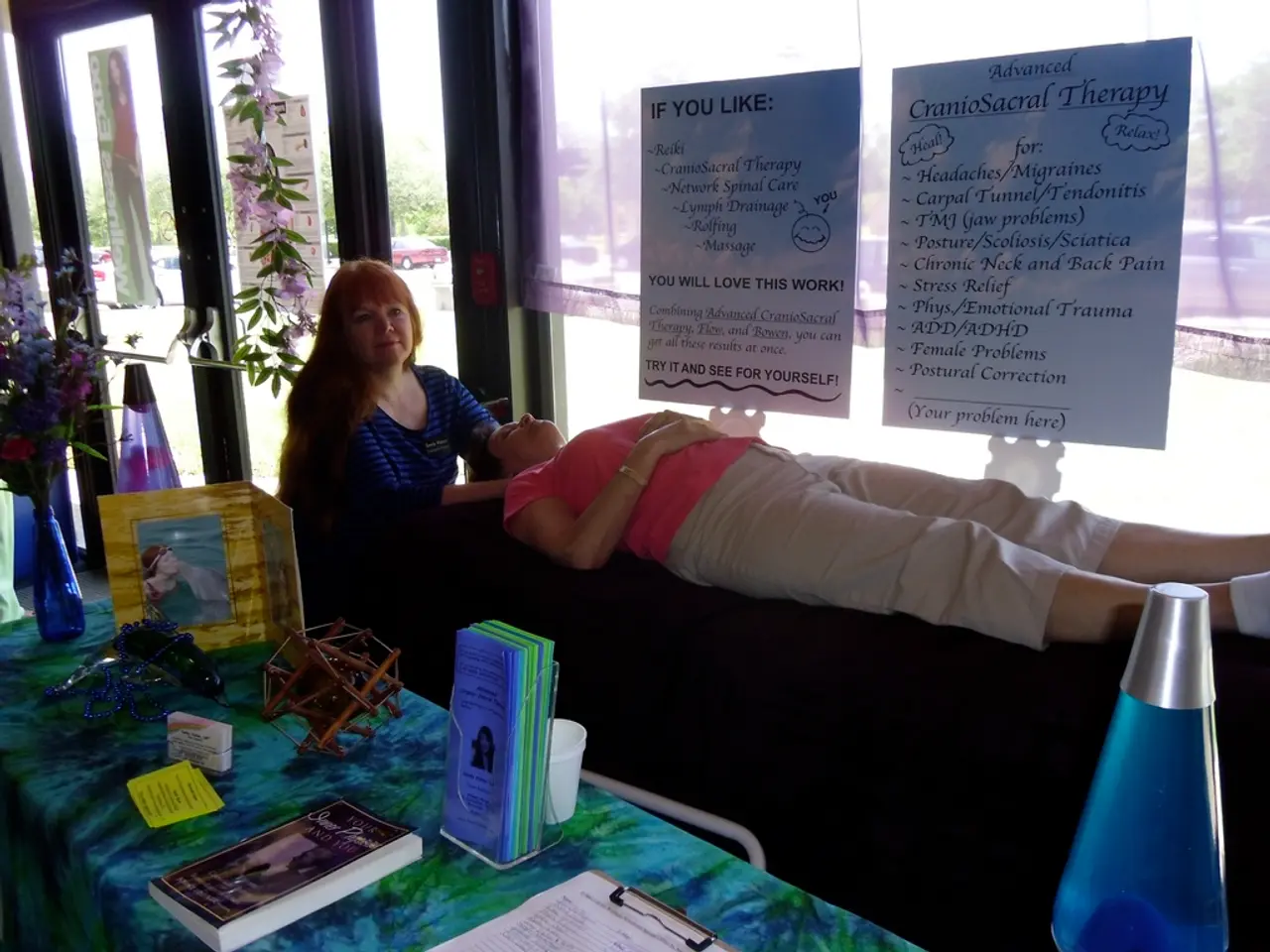Top Nootropics for Enhancing Emotional Sturdiness and Resilience
Emotional resilience, the ability to adapt and recover quickly from stress, frustration, or adversity, is a valuable asset in today's fast-paced world. A growing body of research suggests that certain nootropics, or cognitive enhancers, can help individuals build emotional resilience by reducing stress hormones, enhancing mood-regulating neurotransmitters, and supporting brain energy and repair mechanisms.
Key Nootropics for Emotional Resilience
- Rhodiola Rosea and Ashwagandha These adaptogens help the body regulate cortisol (the stress hormone), thereby improving resilience to physical and mental stress. They also enhance mental energy and mood balance without sedation.
- L-Theanine Promotes a calm but alert state by increasing alpha brain waves and modulating neurotransmitters such as GABA, serotonin, and dopamine, which are crucial for mood stabilization and anxiety reduction.
- Phosphatidylserine (PS) A phospholipid that supports brain cell membranes and regulates neurotransmitters including acetylcholine and dopamine. It improves brain energy metabolism, counters the negative impact of chronic stress and anxiety, and aids mood clarity.
- Selank A peptide that modulates GABAergic activity by increasing GABA receptor binding affinity, leading to anxiolytic effects without sedation. It buffers emotional reactivity and reduces cortisol-related mood swings, thereby enhancing psychological stress resilience.
- Bacopa Monnieri Supports memory and cognitive functions while contributing to emotional balance, likely through modulating serotonin and dopamine pathways.
- Citicoline (Cognizin®) Increases brain energy production, promotes acetylcholine synthesis, and supports mood regulation through enhancing brain cell membrane repair and neurotransmitter function.
Mechanisms of Action
Adaptogens like Rhodiola and Ashwagandha regulate the hypothalamic-pituitary-adrenal (HPA) axis, reducing cortisol secretion and thus lowering stress response intensity. Neurotransmitter modulation by L-Theanine, Selank, and PS improves mood by affecting GABA, dopamine, and serotonin signaling pathways, balancing excitation and inhibition in the brain. Nutrient-based nootropics (Citicoline, PS) support brain energy metabolism and membrane integrity, which are critical for neural resilience and cognitive-emotional stability.
Case Studies and Evidence
Several studies support the efficacy of these nootropics in improving emotional resilience. For instance, a 2004 study published in Stress showed that Phosphatidylserine supplementation lowered cortisol responses in individuals under physical and mental pressure. Another clinical study published in Phytomedicine (2009) showed that individuals under prolonged stress who supplemented with Rhodiola experienced improvements in mood, reduced fatigue, and increased motivation.
Benefits of Improved Emotional Resilience
By enhancing emotional resilience, these nootropics can help individuals navigate professional challenges, personal growth, or everyday adversity, by staying grounded and in control. They can help reduce chronic stress, improve mood balance, reduce anxiety, sharpen cognitive function, and promote long-term stress resilience without sedative effects.
For example, Rhodiola helps prevent cortisol spikes caused by chronic stress, thereby preserving mood, memory, and task performance. L-Theanine promotes a calm but alert mindset, improving your capacity to respond rationally rather than reactively. Lion's Mane Mushroom encourages nerve growth factor (NGF) activity, which may support emotional processing and resilience through neurogenesis in areas of the brain involved in mood regulation.
In conclusion, by harnessing the power of nootropics, individuals can bolster their emotional resilience, enabling them to navigate life's challenges with greater ease, clarity, and emotional stability.
- The adaptogens Rhodiola Rosea and Ashwagandha can help individuals adapt and recover quickly from stress by regulating cortisol and improving resilience to physical and mental stress.
- L-Theanine promotes a calm but alert state by increasing alpha brain waves and modulating neurotransmitters like GABA, serotonin, and dopamine.
- Phosphatidylserine (PS) supports brain cell membranes, regulates neurotransmitters, improves brain energy metabolism, and counters the negative impact of chronic stress.
- Selank, a peptide, buffers emotional reactivity, reduces cortisol-related mood swings, and enhances psychological stress resilience.
- Bacopa Monnieri supports memory and cognitive functions and contributes to emotional balance through modulating serotonin and dopamine pathways.
- Citicoline (Cognizin®) increases brain energy production, promotes acetylcholine synthesis, and supports mood regulation through enhancing brain cell membrane repair and neurotransmitter function.
- Adaptogens like Rhodiola and Ashwagandha regulate the hypothalamic-pituitary-adrenal (HPA) axis, reducing cortisol secretion and thus lowering stress response intensity.
- Neurotransmitter modulation by L-Theanine, Selank, and PS improves mood by affecting GABA, dopamine, and serotonin signaling pathways, balancing excitation and inhibition in the brain.
- Supplementing with Phosphatidylserine can lower cortisol responses in individuals under physical and mental pressure, contributing to better emotional resilience.
- Lion's Mane Mushroom encourages nerve growth factor (NGF) activity, which may support emotional processing and resilience through neurogenesis in areas of the brain involved in mood regulation.




